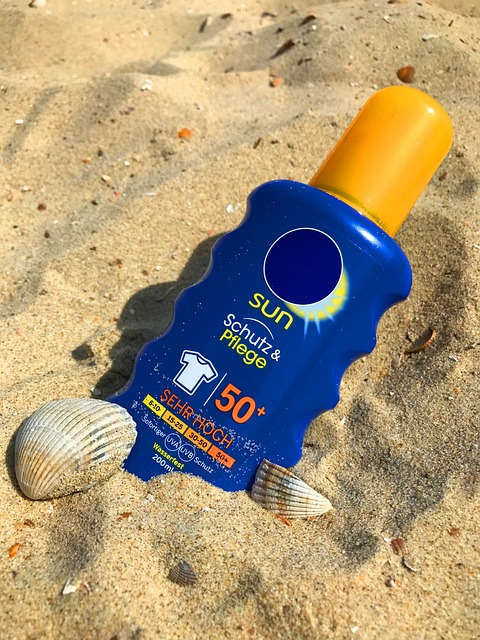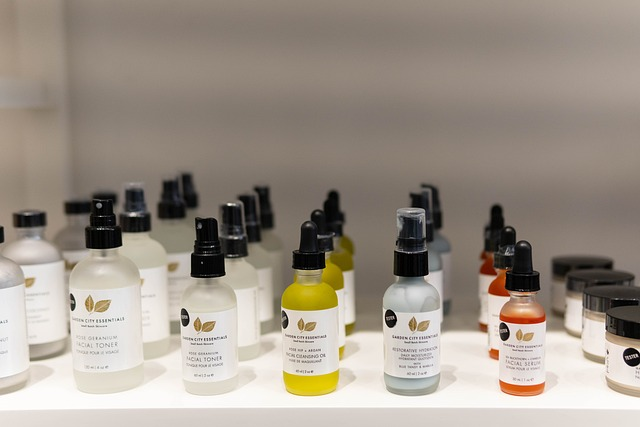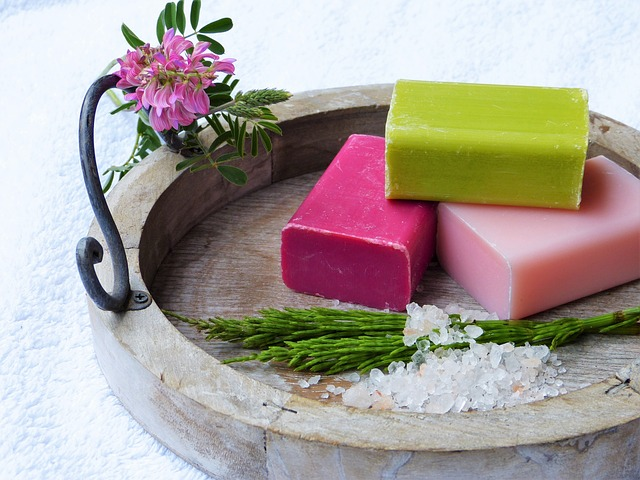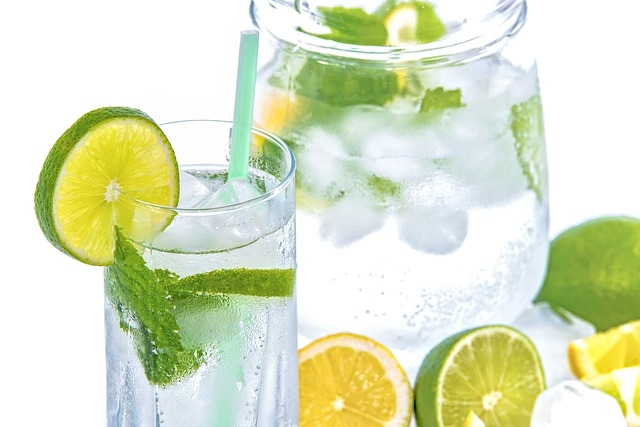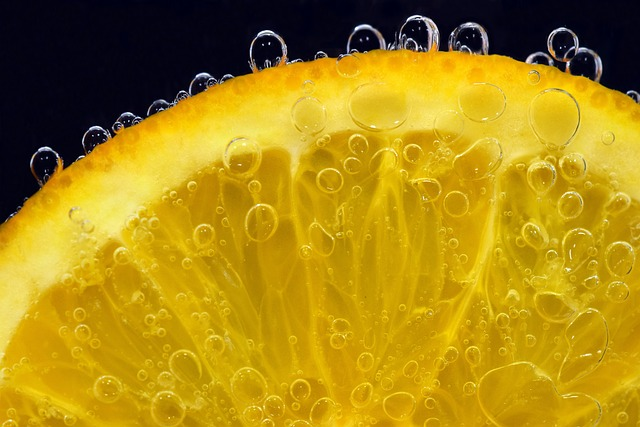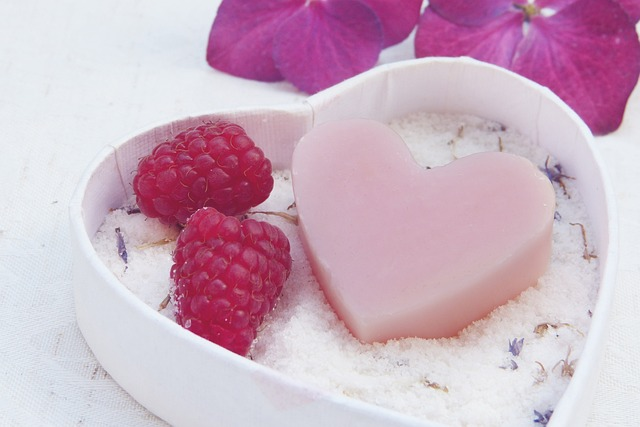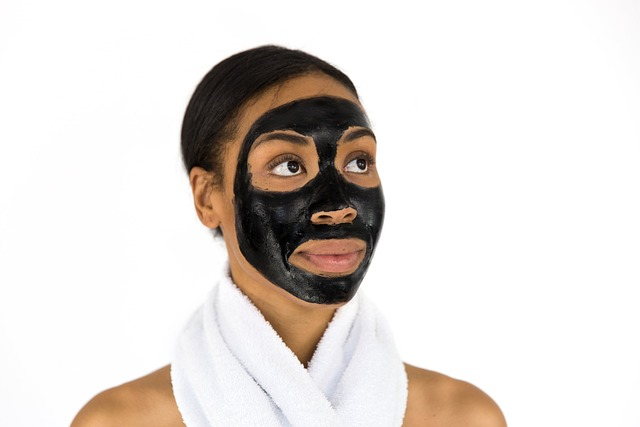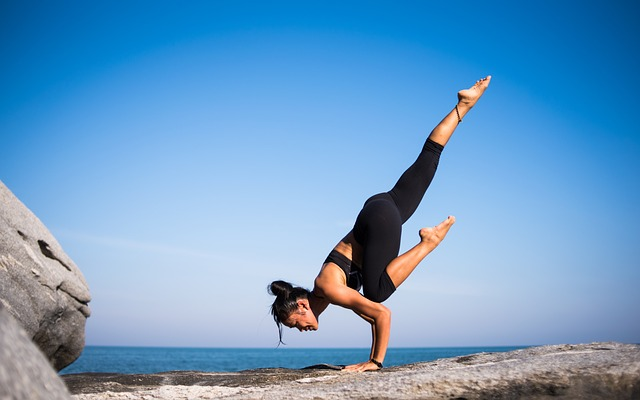8 Essential Summer Skin Care Tips for Glowing Skin
As the hottest season of the year approaches, it’s important to prepare your skin for the harsher elements. To have a healthy and beautiful summer, here are 8 essential tips for keeping your skin glowing – from assessing potential sunscreen needs, understanding how to hydrate effectively, and knowing when to switch up your product routine.
Prepare to be ready and look your best this summer with these effective and simple skin care tips.
Wear Sunscreen
Sunscreen is an essential summer skin care staple, and its importance should not be overlooked. The sun’s UV rays can cause serious damage to your skin, from sunburns to premature aging and even cancer – so it is vital that you protect yourself. Wearing sunscreen is one of the most effective ways to shield your skin from the sun’s harmful rays.
When selecting a sunscreen, it is important to pick one that works for your specific skin type. Sunscreens come in various textures – from light tinted moisturizers to heavier creams – so there are options for everyone! If you have oily skin, an oil-free formula may be best; those with dryer complexions might prefer something more hydrating. There are also powders available which can be applied over makeup for extra protection against the sun’s rays.
The SPF rating system measures how much protection a sunscreen provides against ultraviolet radiation: SPF stands for Sun Protection Factor and ranges from 15-50 (the European Academy of Dermatology and Venerology recommends an SPF of 30 or higher). It is important to choose a broad-spectrum product as this will guard you against both UVA and UVB radiation.
Using sunscreen has many advantages: it protects us from UV exposure, reduces our risk of developing cancerous cells on our skin, prevents premature aging, and gives us a healthy summer glow! Additionally, if you use chemical exfoliants or alpha hydroxy acids regularly, then wearing sunscreen becomes even more necessary as these products make our skins photosensitive.
SPF Rating
The SPF rating system – have you heard of it? It’s an important factor to consider when choosing a sunscreen, measuring the protection it provides against ultraviolet radiation. The higher the SPF, like climbing up a ladder, the more protection it gives. The European Academy of Dermatology and Venerology (EADV) recommends an SPF of 30 or higher as the minimum for preventing dark patches and skin photoaging.
But don’t forget to look for broad-spectrum sunscreens too! This will protect your skin from both UVA and UVB rays – like having two umbrellas instead of one on a rainy day. The SPF rating system is tested in labs and published in academic research papers so you can trust its accuracy. So why should you choose broad-spectrum sunscreens?
Application Frequency
Once you have found the perfect sunscreen for your skin, it’s essential to apply it liberally and evenly. For your face and neck, use a half teaspoon of sunscreen; for limbs, go with a full teaspoon. Apply at least 20 minutes before sun exposure – then reapply every two hours or sooner if you’re swimming or sweating. Don’t forget to reapply! Otherwise you risk sunburns, premature aging and even skin cancer.
Reapplication
Reapplying sunscreen is like a shield against the sun’s harmful UV rays – but how often should you do it? Every two hours, or sooner if swimming or sweating. Set an alarm on your phone, carry sunscreen with you – whatever works for you! But don’t forget: not reapplying sunscreen can have serious consequences. Sunburns, premature aging and even skin cancer are all possible outcomes of neglecting to protect yourself from the sun. And remember: sunscreen is not a substitute for clothing or other protective measures such as hats and sunglasses.
Moisturize Regularly
In the summer, moisturizing is a must for any skin care routine. It helps keep your skin hydrated and shielded from the sun’s rays and other environmental factors, while also maintaining a healthy barrier to keep it looking and feeling its best. From lotions to creams, oils, balms, even tinted moisturizers, there’s something out there for everyone!
But don’t forget: sunscreen is just as important as moisturizer when it comes to protecting your skin from the sun. Powders, sprays or tinted moisturizers with SPF can all do the trick. For those with acne-prone or oily skin though, non-comedogenic and oil-free products are key – look out for ingredients like salicylic acid, benzoyl peroxide, sulfur or niacinamide to help clear pores and prevent breakouts.
Choose the Right Moisturizer
When it comes to choosing the right moisturizer, it is important to consider your skin type. People with dry skin should opt for moisturizers with a thicker consistency that provide intense hydration. Those with combination to oily skin should use water-based formulations or oil-free moisturizers. For people with normal skin, Dr. Mullans recommends using a moisturizer with SPF to give your skin the protection it needs from the harmful UV rays of the sun.
It is also important to choose a moisturizer that suits your skin tone. Tinted moisturizers come in a variety of shades and can provide light coverage while nourishing and protecting your skin. For those with sensitive skin, look for moisturizers free of fragrances and harsh chemicals.
Hydrating Ingredients
When it comes to keeping your skin hydrated during the scorching summer months, it’s essential to use moisturizers that contain hydrating ingredients. Aloe vera, lemon juice and hyaluronic acid are all excellent choices for a moisturizer – they help keep your skin supple and allow it to breathe.
In addition to moisturizers, you can also rely on toners and facial mists for extra hydration. These products work wonders in removing excess oil and sweat while providing an intense boost of moisture.
For the delicate eye area, ingredients such as hyaluronic acid, honey and cucumber will help keep your skin hydrated while preventing signs of aging. So don’t forget these key elements when looking after your skin this summer!
Avoid Oil-Based Products
In the summer, skin care is like a game of chess – one wrong move and you’re in check. Heavy creams, foundations, and primers should be avoided at all costs; instead opt for lightweight moisturizers and makeup products that are free from pore-clogging ingredients. To keep your complexion healthy, it’s essential to use a toner – an aloe vera or cucumber-based toner can prevent sweat and oil from clogging pores, just like a knight protects the king on the chessboard. This will help remove excess oil and keep skin happy and healthy.
Exfoliate
Exfoliation is an essential part of a summer skincare routine, like the cherry on top of an ice cream sundae. It helps to remove dead skin cells, unclog blocked pores, and rid the skin of excess oil – all in order to keep your skin looking healthy and glowing during the summer months. There are two main types of exfoliants: chemical and physical.
Chemical exfoliants contain ingredients such as alpha-hydroxy acids (AHAs) and beta-hydroxy acids (BHAs), which dissolve bonds between skin cells so they can be shed more easily. AHAs are great for dry skin while BHAs work best for oily complexions – but don’t forget to wear sunscreen afterwards as these products can make your skin more sensitive to sunlight!
Physical exfoliants usually come in scrubs or pads that contain abrasive ingredients like salt, sugar or ground coffee beans. These help remove dead cells from the surface of your face without being too harsh – just remember to use light circular motions when applying them! Over-exfoliating can cause windburned-looking tightness, cracks and scales on your complexion, so it’s important not to overdo it!
When it comes time for you to choose an exfoliant product, there are plenty out there that will do the job well; Cetaphil Extra Gentle Daily Scrub, Clean & Clear Watermelon Juicy Scrub, Murad’s Environmental Shield Vita-c Triple Exfoliator and Clinique’s Exfoliating Scrub are all great options. For daily use try using Daily MicroFoliant® or a hydrating body cream instead. When selecting cleansers, opt for mild alcohol free, pH balanced ones in order maintain natural balance on your face.
For those with oily complexions, incorporating regular exfoliation into their summer skincare routine is especially important; Alpha Hydroxy Acid (AHA) pads help remove excess oil while LUNA 3 is also great at cleaning away debris from dead cells without being overly aggressive towards delicate facial tissue. The best time for this step is first thing in the morning before toner moisturizer SPF application and makeup go on!
Chemical Exfoliants
Chemical exfoliants contain powerful ingredients that break down the bonds between skin cells, allowing them to be shed more easily. Salicylic acid helps reduce redness and improve texture, while glycolic acid is an AHA that removes dead skin cells and brightens your complexion. Lactic acid is another AHA that hydrates and softens your skin.
When using chemical exfoliants, it’s essential to follow the instructions on the packaging and wear sunscreen afterwards as they can make your skin extra sensitive to sunlight. To keep your skin healthy, use chemical exfoliants no more than two or three times a week – any more could cause over-exfoliation!
Physical Exfoliants
Physical exfoliants are usually scrubs or pads that contain abrasive ingredients like salt, sugar, or ground coffee beans. These ingredients help to remove dead skin cells and other debris from the surface of the skin. When using physical exfoliants, it is important to be gentle and use light, circular motions. Over-exfoliating can cause windburned-looking, tight, cracked, and scaly skin.
For a homemade foot scrub, mix together half a cup of coffee grounds, a quarter cup of brown sugar, and 1 tablespoon of sea salt. Massage the mixture onto your feet and leave on for 10 minutes before rinsing off with warm water. To make a face scrub, mix together a tablespoon of coffee, a tablespoon of lemon juice, and a tablespoon of aloe vera. Massage the mixture onto your face and leave on for 10-15 minutes before rinsing off with warm water. To make a body scrub, mix together one tomato and two tablespoons of lemon juice. Massage the mixture onto your skin and leave on for 15 minutes before rinsing off with warm water.
It is important to remember that physical exfoliants should only be used a few times a week and should be done after properly cleansing the skin. After exfoliation, it is important to apply a hydrating body cream. This will help to keep the skin moisturised. It is also recommended to use an SPF to protect your freshly exfoliated skin, per the FDA guidelines.
Protect Your Skin

It is important to keep your skin safe from the sun’s harmful rays, especially during summer. Sun exposure can cause damage and premature aging, so it is essential to take steps for protection. Wearing sunglasses, sun protective clothing and hats are all key components of a good skin care routine.
Slathering on SPF 30 sunscreen every day is an absolute must! Not only will this help protect you from UV rays, but also give your skin that gorgeous glowy look. Don’t forget to reapply every two hours for optimal coverage!
In addition to sunscreen, wearing sunglasses, sun protective clothing and hats will help keep your skin healthy and happy. Sunglasses provide protection from the sun’s UV rays as well as air conditioning, which can be damaging to eyes and skin alike. Lightweight fabrics like cotton or linen are ideal for summer months – just make sure they’re not too tight-fitting or made of synthetic materials; otherwise you’ll end up with an uncomfortable itchiness plus weakened skin barrier!
Sun Protective Clothing
When it comes to shielding yourself from the sun’s rays, there are a plethora of protective clothing options. Ultraviolet Protection Factor (UPF) garments provide the best defense against UV radiation – they’re crafted with special chemicals that absorb and reflect it. For optimal protection, look for items labeled SPF 30 or higher.
When selecting your sun-shielding wardrobe, opt for lightweight and loose fabrics that breathe – think cotton and linen. These materials allow air to flow through them, keeping you cool and comfortable while avoiding irritation or itching – perfect for those with sensitive skin!
Sunglasses
Sunglasses are an essential accessory, like a shield for your skin from the sun’s UV rays and air conditioning. Choosing wisely is key to optimal protection – look for sunglasses labeled with “UV-400”, which blocks 99% of UVA and UVB rays.
For outdoor activities such as driving or skiing, polarized lenses are a must-have; they reduce glare from the sun like an invisible forcefield.
Hats
Hats are another essential ingredient in any skin care recipe. Like a shield, they provide extra protection from the sun’s UV rays – making them vital for those who spend plenty of time outdoors. Look for hats with wide brims to cover your face and neck, and opt for breathable fabrics like cotton or linen to keep you cool and comfortable.
Plus, if you’re planning an extended beach day, don’t forget your umbrella! It’ll be like having a personal bodyguard against the sun’s harsh rays – providing optimal protection while keeping you cozy as a clam.
Stay Hydrated
Staying hydrated is essential for achieving healthy, glowing skin during the summer months. To get that perfect complexion, you must make certain diet and lifestyle changes – such as eating fruits and vegetables rich in vitamins, minerals, and antioxidants – as well as getting enough exercise.
Hydrating your skin is key to keeping it supple and youthful-looking; drinking lots of water throughout the day helps flush out toxins, protect delicate tissues like the spinal cord, improve skin barrier function and prevent signs of aging.
Water isn’t the only way to keep your skin hydrated though! Aloe vera is a great moisturizer with healing properties ideal for summer skincare. Other beverages like nimbu paani (lemonade), green tea, coconut water or herbal teas can also help maintain healthy skin.
Water Intake
Drinking water is the most important part of staying hydrated. It is essential to drink at least 8 glasses of water every day, even when not thirsty. It is also important to remember that if you are consuming caffeine, you should drink at least three times the amount of water.
Carrying a water bottle is a great way to remind yourself to stay hydrated and sip from it throughout the day to feel refreshed during hot summer days. Drinking water can help to improve skin barrier function, prevent signs of aging, and make you look fresher and more attractive.
Healthy Beverages
In addition to plain and pure water, there are many other healthy beverages that can help keep your skin hydrated and healthy. Nimbu paani, also known as lemonade, is a great way to stay hydrated. It is full of minerals, vitamins, and antioxidants, and helps to improve blood flow, which can help boost your skin’s health and glow.
Green tea and herbal teas are also great sources of antioxidants and can help protect your skin from free radicals. Coconut water is another great option as it is full of electrolytes and is a natural way to hydrate your skin.
Additionally, avoiding sugary and caffeine-laden beverages, such as soda, is essential as these add no hydrating qualities and can be harmful to your skin and overall health.
Use a Vitamin C Serum
During the summer months, it’s essential to take extra steps to safeguard and nurture your skin. One of the most effective ways to do this is by adding a vitamin C serum into your skincare regimen. Vitamin C is an incredibly powerful antioxidant and free radical scavenger that can help protect your skin from the sun’s damaging rays, keeping it looking healthy and vibrant.
From natural products like Mamaearth’s Skin Illuminated Face Serum with Vitamin C and Turmeric, to more potent professional serums such as O3+ Professional Vitamin C Serum Glow with Glycolic Acid – there are plenty of options available for all skin types.
Vitamin C serums have multiple advantages for your complexion during summertime; they can prevent hyperpigmentation caused by UV exposure, reduce fine lines and wrinkles, boost collagen production for youthful-looking skin, plus shield against environmental damage by scavenging free radicals which cause premature aging.
When applying a vitamin C serum correctly, start off slowly! Apply just a few drops between cleansing and moisturizing so that the product is evenly distributed across your face allowing it to penetrate deeply into the layers of skin. As you get used to using it, you can increase the amount accordingly.
By incorporating a vitamin C serum into your summer skincare routine, you’ll be able to keep your complexion safe from harmful UV rays while maintaining its healthiness and radiance!
Apply Self-Tanner
Getting a sun-kissed glow without exposing your skin to the harmful effects of UV radiation is possible with self-tanning products. Self-tanning products come in a range of forms, including mousse, lotion, and spray. They all work by using a combination of DHA and erythrulose, which interact with the amino acids in the outermost layer of skin to create a natural-looking tan. Self-tanner can be used to improve the appearance of skin, reduce the risk of skin cancer, and prevent sun damage.
When applying self-tanner, it is important to make sure the skin is clean and dry. The product should be applied evenly, using a tanning mitt or glove. To avoid streaking and patchiness, use long, circular motions and be sure to blend the product into the skin. Start with the feet and work your way up the body. Some products require multiple applications for a darker result, so it is important to follow the instructions on the product packaging. After application, wash hands and wait for the product to fully dry before getting dressed.
For those looking to get a sun-kissed look without exposing their skin to UV radiation, there are some great self-tanning products available. Skinerals Onyx Extra Dark Sunless Tanning. Mousse is a great option for sunless tanning. Vita Liberata Advanced Organics Self-Tanning Gradual Lotion is another excellent choice. Both of these products offer a natural-looking tan that will last for days with proper care. With regular use, you can make people believe you spent the summer at the beach without ever leaving your home.
Eat Foods Rich in Antioxidants
Consuming foods rich in antioxidants is a must-have for any summer skincare routine. These compounds, found naturally in many fruits, vegetables and other foods, can protect the skin from sun damage and environmental stressors. Different types of antioxidants – such as vitamin C, vitamin E, carotenoids and flavonoids – provide multiple benefits to the skin: protection from the sun; prevention of acne breakouts; improved collagen production.
Eating antioxidant-rich foods can help shield your skin from sunburns, wrinkles and other UV radiation damage. Plus they reduce inflammation, which helps prevent breakouts! And don’t forget about collagen production – it’s key for keeping your complexion looking youthful during hot summer months.
Citrus fruits like oranges and lemons are high in vitamin C, which boosts collagen production, while green leafy veggies like spinach or kale contain carotenoids that protect against environmental stressors. Green tea is also rich in antioxidants, so sip away to reduce inflammation and keep your skin safe from the sun!
Incorporating home remedies into a summer skincare routine can give you an extra boost too – think drinking green tea, avoiding hot showers, limiting sun exposure or using a vitamin C serum to keep your glow going strong all season long!
When it comes down to it, including antioxidant-rich foods in one’s diet is essential for any summer skincare routine if you want healthy glowing skin that’s protected from harmful rays this season!
Summary
Achieve healthy and glowing skin this summer with these essential tips. Start by protecting your skin from sun damage by wearing an SPF 30 sunscreen and reapplying it every two hours. Drink plenty of water and opt for healthier alternatives such as nimbu paani and herbal teas to stay hydrated.
Consider the type of moisturizer you’re using and make sure to use one specifically tailored to your skin type – and don’t forget to exfoliate! Self-tanning products can also provide a safe alternative to tanning in the sun while consuming antioxidant-rich foods helps boost collagen production, reduce inflammation, and protect the skin from environmental stressors.
Protect your face with sunglasses that have UV 400 protection and wide brims hats for optimal protection from the sun’s rays. Following these steps will ensure healthy, glowing skin this summer season.
Frequently Asked Questions
How do you take care of your skin in summer heat?
To keep your skin healthy and protected in summer heat, wear sunscreen of SPF 30+, apply a mild cleanser, take cool showers, consume antioxidant-rich foods, and use lightweight waterproof makeup.
Additionally, don’t forget to exfoliate, moisturize and use a Vitamin C serum regularly.
What skincare products do i need for summer?
To stay looking your best during the summer months, skin care experts recommend investing in higher SPF sunscreen, a lighter moisturizer, non-comedogenic products, facial cleansing products, and moderated usage of retinoid products.
Make sure you have all these essentials to enjoy summer skin all season long!
How can i make my skin flawless in summer?
To get flawless summer skin, create a consistent routine of washing your face with an anti-acne aloe vera face wash, applying serum, moisturizer and sunscreen, adding antioxidants to your skin care regime, hydrating yourself, wearing SPF makeup and exfoliating regularly.
Include an anti-acne aloe vera face wash in your routine to help reduce breakouts. Apply serum, moisturizer and sunscreen to keep your skin hydrated and protected from the sun. Add antioxidants to your skin care regime to help fight free radicals and keep your skin looking healthy. Hydrate yourself by drinking plenty of water and eating a balanced diet. Wear.

